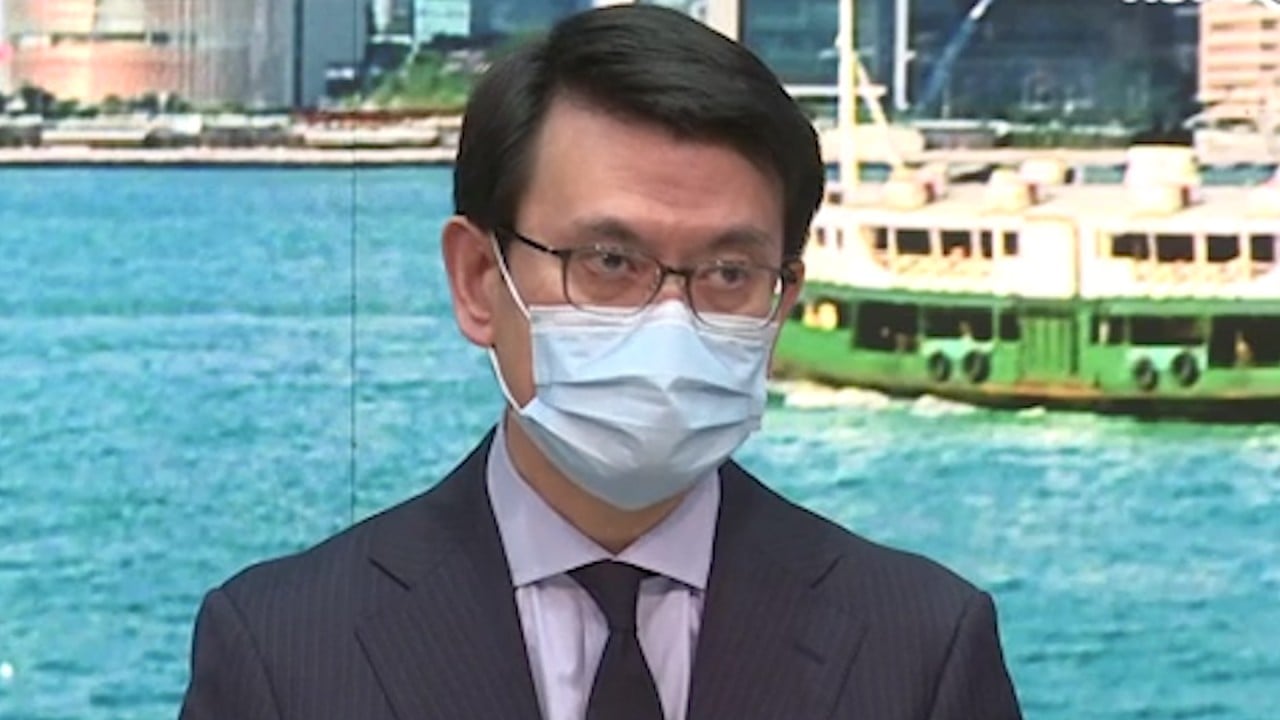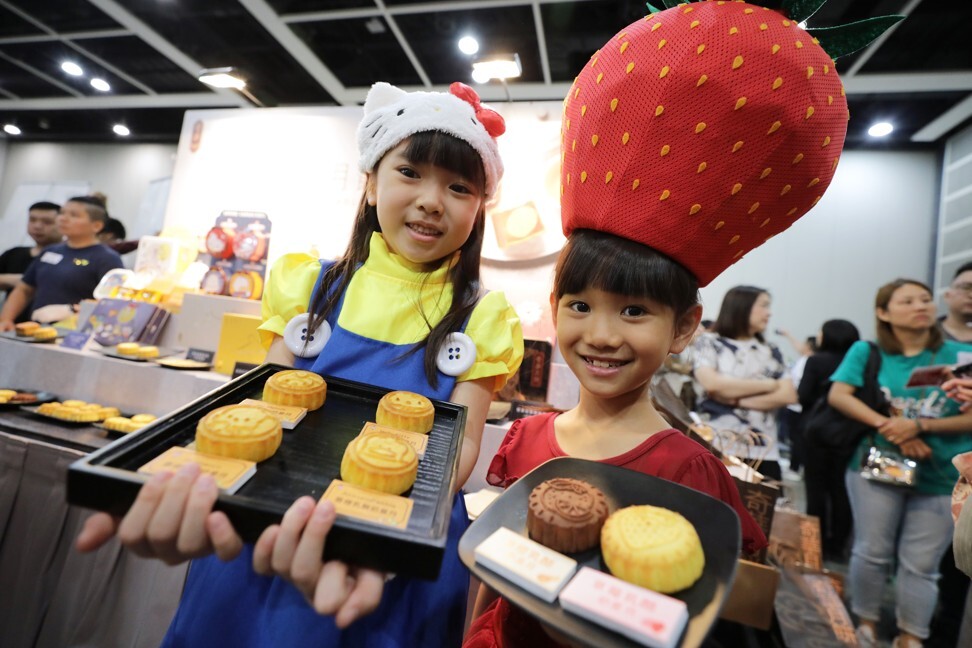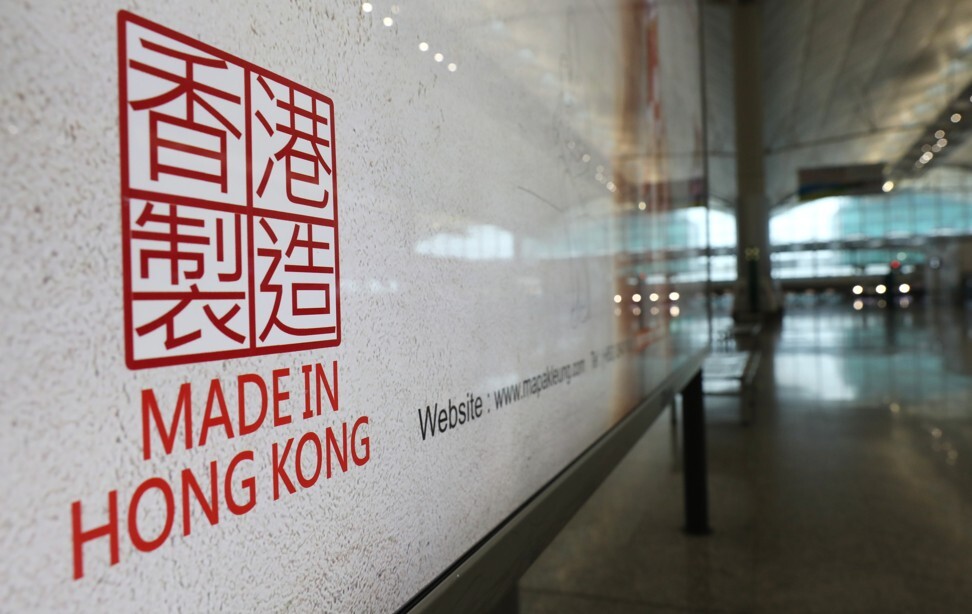
00:59
Hong Kong rejects US rule for ‘Made in China’ labels
Hong Kong exports to US will avoid punitive tariffs, but city minister slams ‘Made-in-China’ relabelling as ‘telling a lie’
- Washington issues a clarification, continuing the exemption for Hong Kong goods from the harsh levies imposed on mainland China
- But city exporters must relabel products ‘Made in China’, leading to concerns Hong Kong brands will be damaged
Hong Kong exports to the United States will still be free of punitive tariffs, according to official Washington guidance, but the city’s commerce minister has blasted the requirement for local brands to relabel their products as “Made in China”, saying it would force traders to “tell a lie”.
Hong Kong’s US exports to be relabelled ‘Made in China’
That effectively means the punishing tariffs the US has imposed on exports from mainland China during the escalating trade war between the world’s two superpowers will not apply to Hong Kong goods.
However, Hong Kong Secretary for Commerce and Economic Development Edward Yau Tang-wah said on Thursday the US clarification caused confusion, and there had been no changes yet in customs procedures.
Can a Canadian product be named as US-made or Mexican-made? It defies common sense
“It is an attempt to impose an origin marking on Hong Kong products, basically asking Hong Kong traders to tell a lie,” he said. “We have to call a spade a spade. How can made-in-Hong Kong products be labelled as from some other place? To put it simply, can a Canadian product be named as US-made or Mexican-made? It defies common sense.”
He said Hong Kong’s membership on the World Trade Organisation stipulated the city as a separate customs territory.
Louis Chan Wing-kin, assistant principal economist in global research at the Hong Kong Trade Development Council, said the guidance from Washington showed that made-in-Hong Kong goods would be free from tit-for-tat tariffs imposed on Beijing under a US list called Section 301 amid the trade war, which started in July 2018.
“It also means the city’s exporters just need to make changes on product labels to say ‘Made in China’,” Chan said.
But city firms remained concerned over the impact of the US policy shift, saying losing the Hong Kong label could harm their branding.
In the latest salvo between Washington and Beijing, the change of product labels arose from Trump’s executive order suspending the privileges that the city enjoyed under the Hong Kong Policy Act of 1992, with the result that Hong Kong would be treated as “just another Chinese city”.
Trump ramped up the rhetoric on Thursday, telling Fox Business News, “Hong Kong can never succeed having China as opposed to the thousands of geniuses that ran it, having China run it. The Hong Kong markets will go to hell. Nobody’s going to do business.”
Hong Kong has been caught in the crossfire of growing tensions between the world’s largest economic superpowers.
China’s Ministry of Commerce on Thursday said Beijing pledged to support the city through promoting it as a key trade centre in the country’s economy.
“Mainland China will deepen its relationship with Hong Kong so that Hong Kong will continue to play a key role in China. We will take measures to deepen our economic synergy. We will intensify our support for Hong Kong in the Greater Bay Area so that it will continue to enjoy steady growth,” a ministry spokesman said.
In 2019, Hong Kong exported US$471 million worth of made-in-Hong-Kong goods to the US, accounting for 0.1 per cent of the city’s total exports, Chan said. He added that most of those were jewellery, electronic goods and electric appliances.
But total export figures also include goods in transit from mainland China.
The US is the second-largest destination for Hong Kong-made shipments, accounting for 7.7 per cent of the city’s total domestic exports in 2019, with the mainland being the biggest destination.
Hong Kong Productivity Council and Hong Kong Shippers’ Council chairman Willy Lin Sun-mo said the new made-in-China label requirements would take a toll on the development of Hong Kong brands.
“We are worried if other countries will follow suit,” said Lin, also a textile maker. “Consumers choose made-in-Hong Kong food and pharmaceuticals, for example, because they trust the city’s name and quality.”

Bronia Yip, vice-president of the Hong Kong Jewelry Manufacturers’ Association, said the US reforms were a blow to the city’s high-end jewellery exports.
“Made in Hong Kong is part of Hong Kong’s story, [and it] represents quality and explains why the products warrant premium prices [compared with] other countries of origins,” she said. “The US trade rules are changing too fast and are too vague to grasp.”
She said Hong Kong was known for its high standards of design and as a world leader in the moulding of jewellery, adding that many core production procedures, such as the mounting of precious and larger diamonds, were performed in the city.

Yip, also founder and managing director of her own company Goldiaq Creation for more than 20 years, said the company, which sells 30 per cent of its products to the US, was itself a victim of the China-US fallout.
“We will explore new markets, such as Asean, which Hong Kong has a free-trade agreement with, and develop our own brands,” she said. “The US punishment on Hong Kong punishes American shoppers as well.”
She said made-in-Hong-Kong jewellery shipped to the US was subject to tariffs of about 6 per cent, but that would double to about 13 per cent if they were to attract the same levy as goods from the mainland.
Almost half of Hong Kong’s jewellery exports over the past few years have been to the US.
Beijing will honour phase one trade deal with US, central bank chief says
Hong Kong Food Council senior manager Sally Chan said the new export rules would challenge some household brands with a made-in-Hong Kong niche.
“Some are responding by producing new labels for exports to make it by September 25,” she said. “Some are studying the rules and formulating strategies to cope with the situation.”
Hong Kong’s iconic Kee Wah Bakery, which was founded in 1938, said it had yet to feel the impact of the new export rules because it had completed all its mooncake shipments to the US for the year.
A Kee Wah spokeswoman said products such as bread, cakes, pineapple shortcakes and bridal pastries for sale in the US market were produced locally.
Additional reporting by Tan Su-lin

